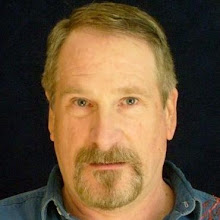
Tour de America
(Photo: Ellen Bullock)
The country is changing and no one has noticed it more than Mike Cohen.
Cohen, who flew out to
“In a way the hardest part was realizing that things had changed,” Cohen said. “It was a different trip from before.”
He speaks of the West in a loving tone of voice. Completely different from the cities in New England where he grew up, Cohen loves to visit the vast expanse that is
“
It took Cohen just over five weeks to work his way back to
Nine years later Cohen realized that “someday” might not happen. In 1992 he received the news that he had a cancerous tumor on his testicle. The tumor was removed and a round of radiation prevented the cancer from spreading, but Cohen was determined to make the trip he had promised himself he would do. So, in the summer of 1992 he set out.
Fifteen years later, he decided to do it again. Now 54, Cohen feels his cross-country biking trips are over, although he learned a lot about himself and the country along the way.
“
The whole trip was difficult, however, Cohen said. There were times when he wanted to give up, but knowing that people at home were reading about him in the
“I had ACDC playing in my head,” Cohen said. “‘It’s a long way to the top if you want to rock and roll.’”
One of the most physically difficult parts of the trip was the extreme heat, he said. Biking through desolate lands with the temperature over 100 degrees was not something he had planned on, or was prepared for. At one point he was forced to accept that to continue would be detrimental to his health, and so he stopped, accepting a ride for a few miles.
Despite that, Cohen said he always felt cared for throughout the trip.
“At certain times I would just stop and someone would appear and give me important information,” he said. “Or someone would take me in. Thing worked out. People were being helpful. It’s a very spiritual experience.”
As he moved through the western part of the country, Cohen was surprised to see the change in climate of the states. People who live in
“I quickly realized it was like a toll road,” Cohen said. “It used to be $1.99 would buy you two eggs and toast for breakfast. Now, for $7.50 you get a three-egg omelet and fancy potatoes, because the demand is there. Things that used to be simple were expensive.”
Little two-lane roads became junior interstates, there were endless commercial strips where there didn’t used to be any, and a town was no longer just a town, Cohen said.
One of the positive benefits to this is that the people are friendlier. Being so isolated, Cohen said, many ranchers and farmers were not friendly to him as he passed through. He got the impression that many were concerned about immigrants, and though they were outspoken, Cohen found it difficult to keep his own mouth shut out of respect for the residents of the state. He was, after all, just passing though himself.
“Part of the thing out West, is that they’re thinking, ‘what an idiot,’ but they won’t stop you,” he said. “If you need help they’ll help you.”
The last time Cohen made this trip he found that many people he ran into hadn’t been to
“When I first did it, and said I was going to
Now, however, many more people he interacted with had been out East, so he asked how friendly New Englanders were to them. Cohen was surprised to learn that their impressions were of friendly people, and he was reassured that they were treated as well as he was being treated.
“I’m going to try not to do it again,” Cohen said. “But I did it.”

No comments:
Post a Comment